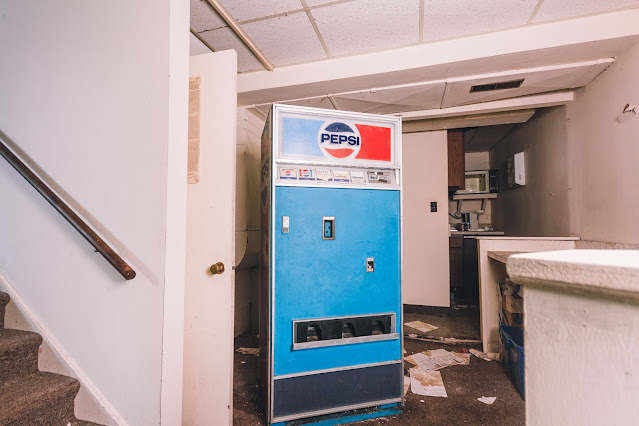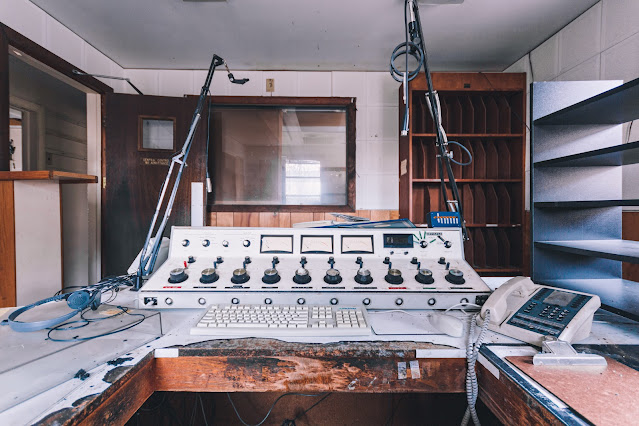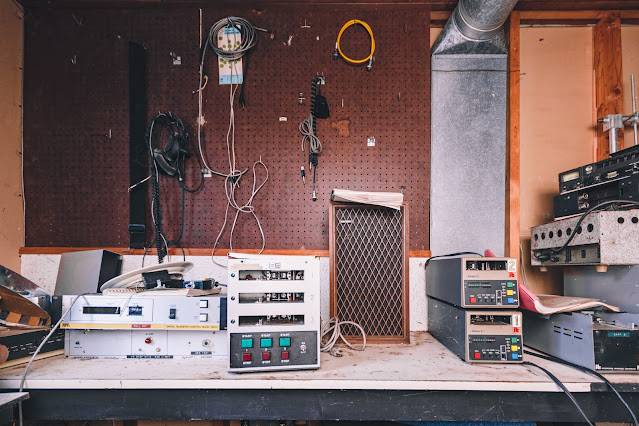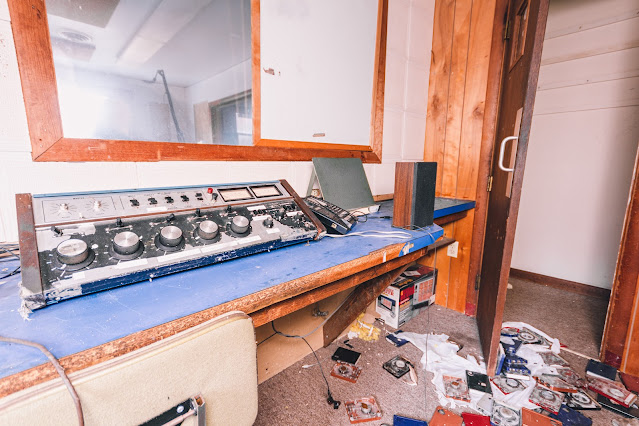WLIS Radio Station 1420 AM
Stepping into the forgotten corridors of an abandoned radio station, I found myself enveloped in a world frozen in time. In my decade-long journey through the remnants of the Northeast's past, this was a first - exploring a place once alive with the sounds of music and conversation, now silent and still. As J and I approached the lifeless structure of WLIS Radio 1420, a sense of anticipation filled the air.
We scouted for entry points, initially considering a second-floor window but the buzz of passing vehicles street side steered us elsewhere. Eventually, we discovered a more secluded entry at the rear - a window that ushered us into the station's gloomy basement. From there, we ascended, drawn by the allure of what lay above.
The upper floors were a treasure trove, a snapshot of an era long passed. Rooms were scattered with relics of radio and telemetry, an eclectic mix of equipment abandoned. Tables, shelves, and even the floor served as resting places for these pieces of history. One particular room caught my eye - shelves laden with sleeved vinyl records, spanning genres and eras. In my eagerness to document our discovery, I regretfully overlooked the chance to delve into the station's musical soul and heartbeat.
Time was not our ally as the sun's descent hastened our exploration. We moved with purpose, capturing the essence of this place through our lenses. In another room, cassette tapes claimed dominion, while a different space was littered with circular clear cassette cartridges - remnants of a bygone technological era.
Amidst all this, a standout piece caught my attention: an old, vintage Pepsi vending machine, its vibrant blue a stark contrast to the dust-laden surroundings. It still flaunted its offerings - Pepsi, Diet Pepsi, Orange, and the baffling Diet Orange. Who indeed, I pondered, ever opted for Diet Orange?
I ventured further into the heart of the abandoned WLIS Radio 1420, finding myself in the main radio station room. This was where the magic happened, where disc jockeys once spun tales and tunes into the airwaves. Despite years of neglect, the room held onto its former glory. The DJ equipment, though aged, maintained a dignified presence.
A pair of headphones, now missing ear muffs, lay abandoned at one end of the desk. Nearby, mic booms and XLR cables dangled, their microphones long gone, like voices silenced by time. On the other end sat an old telephone, mute and disconnected. And there, taking center stage, was the Autogram console, its dusty keyboard a silent witness to history.
I couldn't help but imagine firing up the console, breaking the stillness with a final swan song. A tribute to the listeners who might still wonder about the fate of WLIS Radio 1420, recalling the cheerful banter and heartfelt connections that once bridged the airwaves.
Reflecting on the equipment left behind, it was evident that when the station closed, employees salvaged only what was necessary, leaving behind items deemed obsolete or of little value. The remnants were far from the modern, high-tech gear you'd find in renowned Manhattan stations like iHeart's The Breakfast Club or The Angie Martinez Show. They were relics from a different era, each with its own story, each a piece of the station's soul.
As the shroud of night began to envelop us, J and I departed from the hallowed halls of WLIS Radio 1420. The experience lingered with me, a rare glimpse into a world now lost. It wasn't until J broke the news of its demolition that I realized the true finality of our visit. The station, which had stood as a silent guardian of memories and music, was now just a fragment of history.
Reflecting on this, I recalled a social media post from some time ago about another radio station that had captured the Urbex community's attention. It became a hotspot and never-ending posts on Instagram, with accusations flying about the theft of valuable equipment and records. This led to its ultimate destruction and ruin, a fate met at the hands of locals and outsiders alike. The parallels with WLIS Radio 1420 would have been unsettling if it had become famous after our visit.
The post-visit fate of WLIS Radio 1420 remained a mystery. I harbored a hope that someone, somewhere, recognized the value of those vinyl records and other relics. The thought of them languishing in a trash dump was disheartening. Ideally, they would be treasured in a collector's archive, a tangible link to a bygone era.
WLIS 1420 AM had once been a beacon in Old Saybrook, Connecticut. Its airwaves, beginning in 1957, were filled with talk radio and adult standard tunes. Its presence was a staple in the community, a familiar voice in the homes of many. Now, it lives on only in the memories of those it touched and in the few photographs and stories left behind by explorers like myself and J. It's a poignant reminder of the transient nature of our creations and the enduring power of memory.
















Comments
Post a Comment